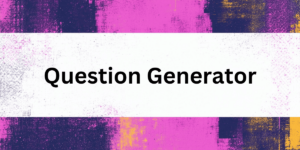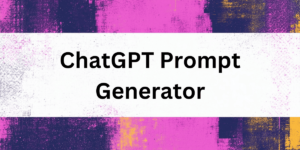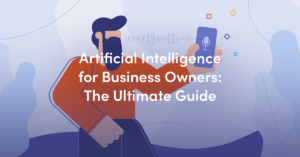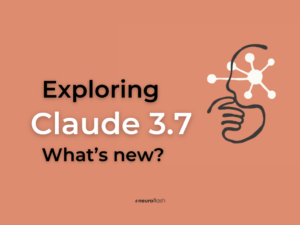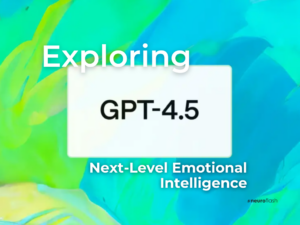Have you ever faced the daunting task of naming a story, only to find yourself staring blankly at a screen, unable to conjure even a single fitting title? This blog post delves deep into the core of storytelling in the digital age, exploring how AI not only enhances your content marketing strategy but also imbues your narratives with unique, compelling identities.

Summary 💡
- AI has revolutionized storytelling with story title generators, sparking creativity and producing captivating titles that captivate audiences.
- Story title generators optimize content marketing with compelling titles that boost visibility, SEO, and engagement, ultimately leading to higher conversion rates.
- AI-generated titles utilize advanced technologies like natural language processing and machine learning to analyze data, identify patterns, and create resonant titles for target audiences.
- Measuring the impact of AI-generated titles on audience engagement and conversion through metrics is essential for optimizing content.
Unveiling the Power of AI in Storytelling and Creative Writing
The use of a story and book title generator can significantly expedite the writing process, allowing storytellers, writers, and content creators to focus more on the content and character development itself rather than getting bogged down by the often daunting task of title and name creation.
AI-powered tools and algorithms are increasingly being used to enhance the creative process, generate engaging content, and assist writers in producing high-quality narratives. Here are some key aspects of the power of AI in storytelling and creative writing:
- Automated Content Generation: AI can generate content automatically by analyzing vast amounts of data and identifying patterns and trends. AI-powered tools such as natural language processing (NLP) and machine learning algorithms can create articles, blog posts, and other written content based on specific parameters and guidelines. This automation can help writers save time and streamline the content creation process.
- Personalized Recommendations: AI can analyze user behavior and preferences to provide personalized recommendations for readers and viewers. By understanding individual preferences, AI algorithms can suggest relevant content, books, movies, or articles that align with a user’s interests. This level of personalization enhances the reader’s experience and increases engagement with the content.
- Storytelling Assistance: AI can assist writers in developing compelling narratives and storylines. AI algorithms can analyze existing stories, plot structures, and character arcs to provide suggestions and ideas for enhancing a writer’s work. Additionally, AI-powered tools can assist in generating plot twists, character development, and dialogue, helping writers overcome creative blocks and spark new ideas.
- Content Curation and Editing: AI tools can curate and edit content efficiently, ensuring high-quality writing and adherence to style guidelines. AI-powered editing software can detect grammar errors, punctuation mistakes, and inconsistencies in writing, helping writers refine their work and produce polished content. AI can also analyze content for plagiarism and provide suggestions for improving readability and coherence.
- Interactive Storytelling Platforms: AI-driven interactive storytelling platforms enable users to engage with stories in dynamic and immersive ways. These platforms use AI algorithms to adapt the storyline based on user interactions and choices, creating personalized and interactive narratives. Users can influence the plot development, character outcomes, and story progression, leading to a more engaging and immersive storytelling experience.
- Data-Driven Creativity: AI can leverage data insights to fuel creativity and innovation in storytelling. By analyzing audience feedback, social media trends, and market preferences, AI algorithms can provide writers with valuable insights and inspirations for creating captivating content. Data-driven storytelling allows writers to tailor their narratives to specific audience interests and preferences, enhancing the impact and relevance of their work.
But what exactly is a story title generator? Simply put, it’s an AI-driven tool designed to generate compelling and unique titles and names for your narratives—be it for books, articles, blogs, or marketing campaigns. This innovative technology leverages algorithms and linguistic patterns to produce titles that not only capture the essence and tone of your story but also engage and intrigue your target audience from the get-go.
How Book Title Generators Elevate Your Writing and Content Marketing Strategy
In the competitive realm of content marketing, standing out is paramount. A unique, attention-grabbing title is your first interaction with potential readers—it’s what makes someone stop scrolling and start reading. Here lies the unmatched value of book title generators in elevating your writing and content marketing strategy. These AI-powered tools are not just about creating titles; they’re about crafting gateways that draw readers into your content universe.
By leveraging AI to generate new book titles, you effectively tap into a reservoir of creativity that ensures your content doesn’t just blend into the background. These generators analyze trends, linguistic patterns, and the emotional triggers of your target audience to propose titles that resonate on a deeper level. This strategic alignment with audience preferences means your content is more likely to be seen, shared, and remembered.
Furthermore, story title generators can significantly enhance your SEO strategy. By incorporating relevant keywords into compelling titles, these tools help improve your content’s visibility on search engines, driving organic, free traffic to your site. This aspect is crucial in a digital age where discoverability can make or break your content marketing efforts.
The adaptability of story title generators also means you can tailor your titles to different platforms, whether it’s a blog post, social media update, or an email campaign. This versatility ensures that your content remains cohesive across all marketing channels, reinforcing your brand identity and message.
Integrating neuroflash as your Story Title Generator into Your Creative Process
Incorporating story title generators and writing tools into your creative process can revolutionize how you approach writing content, making it a seamless, more innovative journey. The fusion of AI with human creativity opens up a new realm of possibilities, transforming the way stories and essays are named and branded. To effectively integrate these powerful tools into your workflow, consider the following strategies:
Start with clarity
Before using a story title generator or any writing tool, have a clear understanding of your narrative’s core message, target audience, and desired impact. This clarity ensures that the input you provide to the AI aligns with your content’s goals, leading to more relevant and impactful title suggestions. You can use ContentFlash to generate original ideas by simply selecting which genre the book is supposed to be and what target audience you want to reach with it

Embrace experimentation
One of the greatest benefits of using an AI title generator is the ability to experiment with a variety of themes, styles, and tones. Don’t hesitate to explore different prompts on ChatFlash’s list of prompts or tweak your inputs to see how slight changes can produce dramatically new titles. This exploration can uncover unexpected, compelling ways to frame your narrative.

Optimize and personalize
While AI-generated titles can be strikingly apt, they may not always perfectly capture the nuance of your story or essay. Use these suggestions as a starting point, refining and personalizing them to ensure they fully embody the essence of your content. This might involve combining elements from multiple suggestions or infusing the title with keywords and phrases that resonate deeply with your audience. Choose a tonality of your story, or depending of the characters’s personality, to make sure that the text conveys they correct message and emotions.

Integrate with your overall content strategy
Ensure that the titles and names generated by AI are not just catchy but also cohesive with your brand voice and content strategy. They should reflect the tone, style, and values of your brand, contributing to a consistent and recognizable identity across all your content.
Leverage for brainstorming sessions
AI-generated titles and ideas can also serve as a springboard for brainstorming sessions. Presenting a range of AI-suggested titles to your team can spark creative discussions, leading to refined ideas and characters that might not have been considered initially. This collaborative approach maximizes the potential of AI while harnessing the collective creativity of your team.
By integrating story title generators and writing tools into your creative process, you not only expedite the writing journey but also enhance its quality. This synergy between AI and human creativity ensures that your narratives, whether they’re rooted in fantasy or reality, are not just well-named but also more engaging, memorable, and aligned with your audience’s interests and expectations. The result is a streamlined, innovative approach to storytelling that keeps you at the forefront of content creation in the digital age, offering a plethora of free ideas to get your next big project started.
Frequently Asked Questions
How do you come up with a good title for a story?
To create a compelling title for your story, start by brainstorming keywords, themes, or phrases that capture the essence of your narrative. Consider the tone, setting, main characters, or any unique plot twists. A good title should intrigue readers, hint at the story’s genre, and reflect the story’s heart. Experiment with different structures such as questions, statements, or character names. Sometimes, inspiration can come from a pivotal moment in the story or a striking quote from the narrative itself.
What title should I give my story?
The title you choose should resonate with the core themes and emotions of your story. Reflect on the main conflict, the journey of your characters, or the setting as starting points. A title that evokes curiosity or an emotional response can be particularly effective. If stuck, try writing a brief summary of your story and highlight the most vivid or critical elements to inspire a title.
How do you come up with a cool title?
To devise a cool title, focus on creating an element of intrigue or uniqueness that sets your story apart. Play with word combinations, use alliteration, or invent new words. Look for inspiration in your story’s most memorable scenes, dialogues, or character traits. A cool title often breaks the norm, so don’t shy away from unconventional or bold choices that make your story stand out.
How do you title your own story?
Titling your own story involves introspection and creativity. Start by summarizing your story in a single sentence to distill its essence. Use this as a springboard to generate title ideas that encapsulate your story’s spirit, challenge, or mystery. Consider your story’s emotional impact, key motifs, or symbols as potential title sources. Remember, the best titles are often those that resonate personally with you as the author, while also captivating your intended audience.
Conclusion
The integration of AI into story title generators revolutionizes content creation and marketing, enhancing audience engagement and conversion through data-driven insights. By combining human creativity with AI technology, narratives can captivate and engage readers effectively. Monitoring the impact of AI-generated titles allows for a refined content strategy, helping stories stand out and make lasting impressions in the digital landscape.




